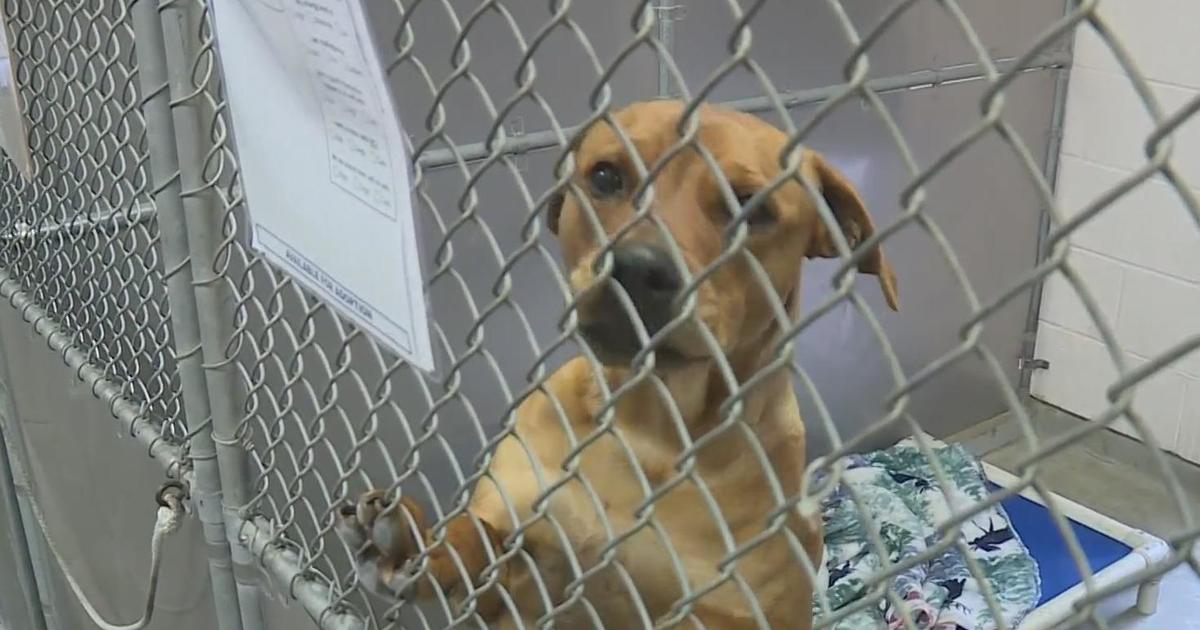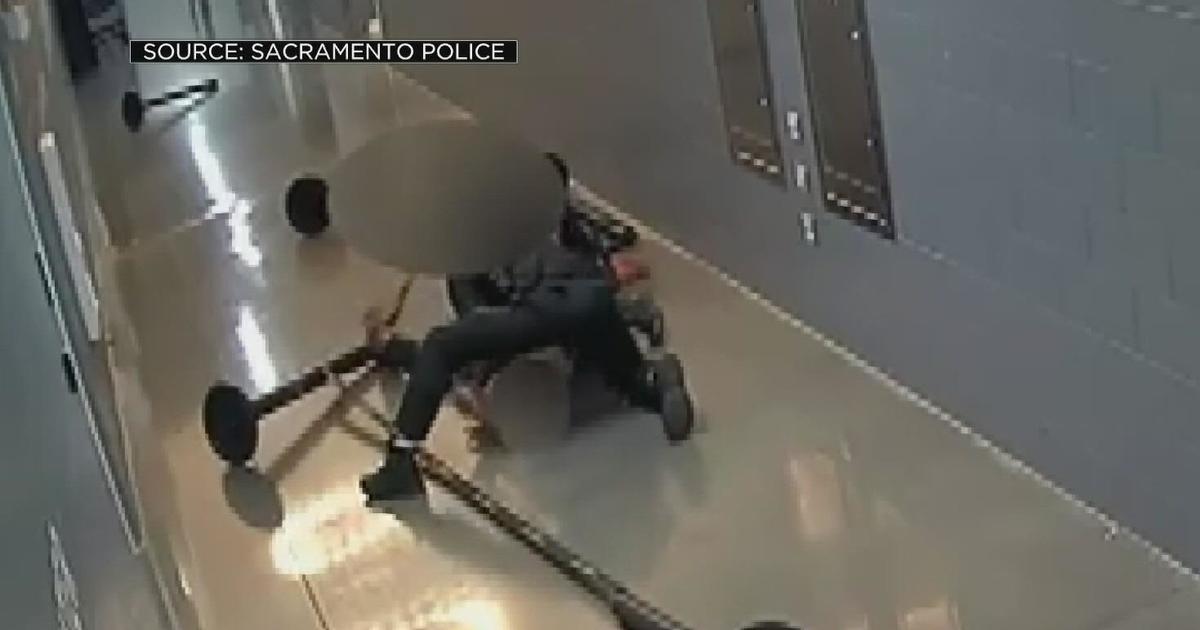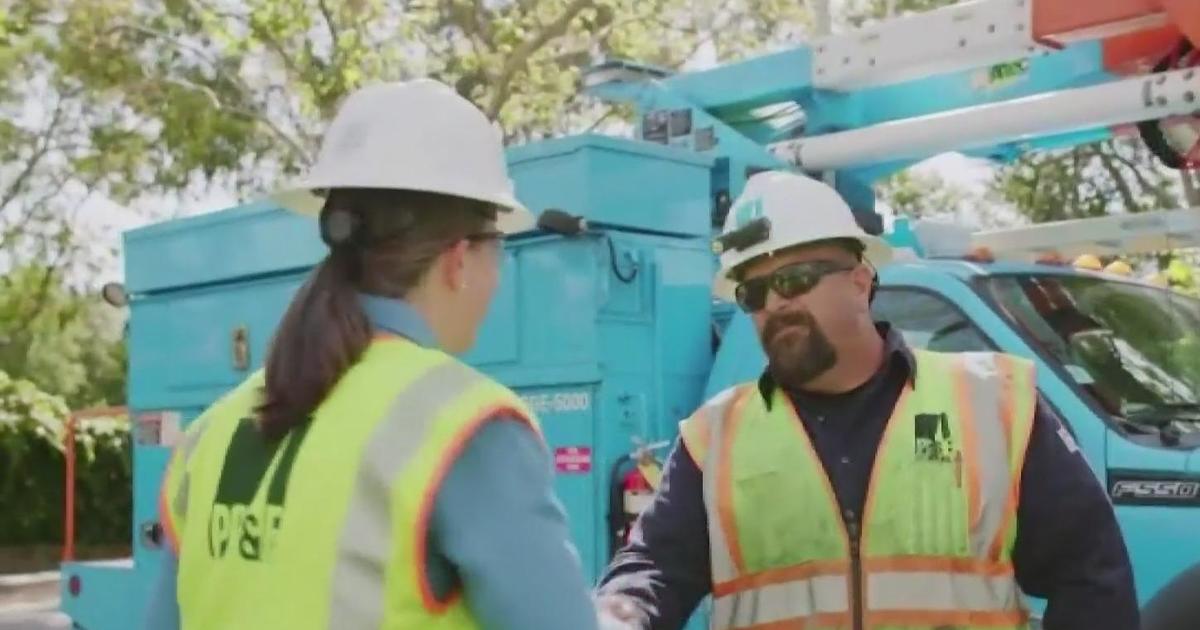Proving Illegal Water Grabs Tough In California's Drought
SACRAMENTO, Calif. (AP) - California's vast network of reservoirs, canals and rivers is among the world's most engineered water systems, but it is tough to prove when water is illegally siphoned because of sparse metering, infrequent reporting and a complex web of tens of thousands of water rights.
Now, water regulators are proposing their first prosecution for unauthorized water diversions in the drought. They say unusually detailed records spare them the usual challenges involving such cases as they seek to show they are serious about enforcing widespread cutbacks.
The State Water Resources Control Board's proposed $1.5 million fine of the Byron-Bethany Irrigation District, which serves 160 farming families and a suburban community in the Central Valley, also allows it to test its authority to say when water supplies are stressed.
Prosecutors allege the district pumped 675 million gallons from a channel in June, even after regulators warned it was running too low to provide water.
Unlike other districts that take water with little oversight, Byron-Bethany's diversions from the channel are closely monitored because it feeds into the 444-mile California Aqueduct, a major artery of the state's water delivery system built in the 1960s.
"In many ways, this is a very straightforward case," said Andrew Tauriainen, lead prosecutor on the case. "It will be a good test case for the state water board to consider what I think are the bigger-picture questions."
Those questions include whether the state fairly calculates water supply.
Regulators monitor the state's waterways to determine if there's enough water to irrigate crops, serve homes and fuel industrial production.
The forecasting takes into account rainfall, how much water is in snow and is seeping in soil, releases from reservoirs, and stream levels. Numbers are readjusted daily with the slightest precipitation.
Still, the state is essentially guessing how much water is available.
Byron-Bethany attorney Daniel Kelly says the state's approach is too broad, focusing on entire watersheds rather than smaller waterways, and relies on faulty data. The district asserts the state can't prove it illegally took water if it can't even prove there wasn't enough for it.
The district also lies in the Sacramento-San Joaquin River Delta, considered the heart of California's water system because it has been engineered over time to redirect water to Southern California cities and other users. A long-running dispute has raged over what water naturally flows for farmers in the delta and what's released from reservoirs for cities.
Even if the question of how much water is available is resolved, keeping track of what's left is another challenge.
The water board has ordered conservation from cities, businesses and agriculture industry during the four-year dry spell. Under a century-old water rights system, water is prioritized based on who has the earliest rights.
Byron-Bethany is among those holding prized senior water rights - claims to waterways established before the advent of government regulation in 1914. Cities, individuals and corporations with these rights don't regularly report consumption and don't have to meter water use.
"The data is not great," said Eric Garner, a water attorney who is not involved in the case. "It's not like you have an app that tells you how fast every car on the freeway is going. There's nothing similar for water."
Other Western states have remote sensors and aerial monitors tracking water diversions.
In California, the water board conducts hundreds of inspections to check if pumps are operating or irrigation ditches are flowing from rivers. Some farmers will contest they are taking water entitled to them under other rights, making matters more complicated. Investigations from last year are still pending.
But no inspectors or subpoenas were needed in the Byron-Bethany case.
It only had one right to one state-monitored channel. The state measures water diversions from that channel daily and posts them online - rather than relying on self-reporting staggered every three years for other senior water rights holders.
Tauriainen, the water prosecutor, says ideally future generations will track where precious and dwindling water supplies are going in real-time, especially if the historic drought becomes the new normal.
"Every drought teaches different lessons, and that's the lesson this drought is going to teach," he said.
___
Follow Fenit Nirappil on Twitter at www.twitter.com/FenitN
Copyright 2015 The Associated Press.



